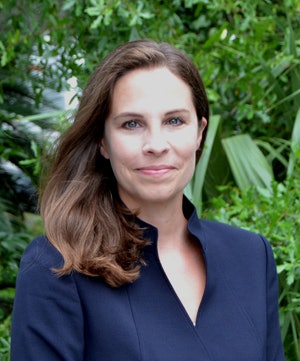SAN DIEGO — Higher education human resources leaders from across the nation gathered this weekend to address challenges at colleges and universities including identifying pay gaps, representation shortcomings, and faculty academic freedom concerns.
 Maureen De Armond
Maureen De ArmondThe annual College and University Professional Association for Human Resources (CUPA-HR) conference featured an abundance of sessions on campus climate, inclusive hiring practices and free speech discussions in light of recent instances of unrest on college campuses. According to Sissy Meredith, CUPA-HR Vice President and Chief Learning Officer, the conference brought together “over 350 exhibitors and more than 1,000 attendees.”
In a session entitled “Blurred Lines: A discussion of free speech on the 21st century campus,” Maureen De Armond, assistant vice president of Human Resources Services at the University of Florida, provided an overview of the evolution free speech on campuses. Protests on campus, participation in marches, and social media expression from faculty on controversial issues, were discussed with specific proactive tips for HR representatives to follow if a controversial speaker is invited to speak at their institutions.
“Free speech decisions are not going to make everyone happy,” De Armond said. “People are going to be mad regardless of what policy or process and that is something that administrators struggle with regularly.”
The distinction between political speech and hate speech dominated the conversation and what academic freedom means to faculty that use social media to express their views.
Rebecca Peterson, assistant director of Faculty Relations at Florida State University, found the discussions relevant and vital in the midst of the current political and social climate.
“It brought to light the current issues with free speech, particularly how it pertains to academia in our modern technological world and the balance between academic freedom and compliance with institutional policies and values,” Peterson said.
Many institutions have experienced backlash in the form of protests in reaction to speakers exercising their right to free speech. De Armond suggested that colleges and universities should have a clear understanding of First Amendment protections according to the law.
“Let’s take a step back and see what the law says,” said De Armond. “The initial purpose of the First Amendment was to make sure that we as citizens had a voice to criticize our government and that our government would have to listen to us when we criticize it.”
Today, free speech and the First Amendment are being utilized differently.
“Look at how some reckless faculty that perhaps use social media to speak their views or controversial speakers that come to campus criticizing segments of the population,” De Armond said. “The law does not consider hate speech to exist outside of First Amendment protections.”
De Armond’s campus recently has experienced the challenge of dealing with a controversial speaker.
Last month, the University of Florida (UF) denied Richard Spencer, a White nationalist and head of the National Policy Institute, an opportunity to speak at a September 12 engagement. The university cited safety concerns in the wake of violent clashes at a rally in Charlottesville, Va., at the University of Virginia.
Spencer and UF have been discussing an alternative date.
Institutions must consider more than whether to undermine their diversity and inclusion statements by hosting speakers that oppose those principles, but how to justify the incurred cost of protecting the speakers’ First Amendment rights.
Decisions to host speakers such as Spencer are not easy to make especially when the cost to host them is staggering. Last week the University of California at Berkeley spent $600,000 on security to ensure that conservative writer Ben Shapiro could speak on their campus without incident.
Jamal Mazyck can be reached at [email protected] and on twitter at @jmbeyond7.





















